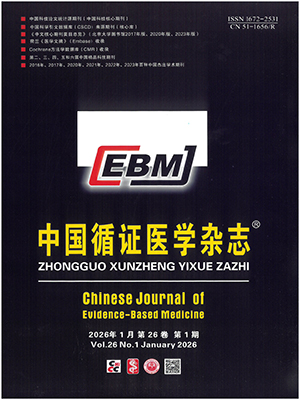| 1. |
Stephen C, Artsob H, Bowie WR, et al. Perspectives on emerging zoonotic disease research and capacity building in Canada. Can J Infect Dis Med Microbiol, 2004, 15(6): 339-344.
|
| 2. |
Michell B. What could Dr Finlay and Mr Herriot learn from each other? BMJ, 2005, 331(7527): 1220-1221.
|
| 3. |
Pappaioanou M. Veterinary medicine protecting and promoting the public’s health and well-being. Prev Vet Med, 2004, 62(3): 153-163.
|
| 4. |
Koopman JS. Emerging objectives and methods in epidemiology. Am J Public Health, 1996, 86(5): 630-632.
|
| 5. |
Sackett DL, Rosenberg WM, Gray JA, et al. Evidence based medicine: what it is and what it isn’t. BMJ, 1996, 312(7023): 71-72.
|
| 6. |
Taylor LH, Latham SM, Woolhouse ME. Risk factors for human disease emergence. Philos Trans R Soc Lond B Biol Sci, 2001, 356(1411): 983-989.
|
| 7. |
Brackett D, Medellin RA, Caceres C, et al. Biodiversity and human livelihoods—the state of the planet in 2004. Commissioned issue paper of the United Nations Millennium Project Task Force on Environmental Sustainability, 2004. www.unmillenniumproject.org/documents/TF6%20IP1%20Biodiversity.pdf (accessed 3 December, 2010).
|
| 8. |
Wurtz RM, Popovich ML. Animal Disease Surveillance: A Framework for Supporting Disease Detection in Public Health. Tuscon, AZ: Scientific Technologies Corporation, 2002 Mar.
|
| 9. |
United States Department of Agriculture National Veterinary Services Laboratories. The National Animal Health Laboratory Network: A State and Federal Partnership to Safeguard Animal Health. http://nahln.vs/ (accessed 10 January 2011).
|
| 10. |
Tuberculosis control India. http://www.tbcindia.org/ (accessed 5 February 2011).
|
| 11. |
Mukherjee F. Comparative prevalence of tuberculosis in two dairy herds in India. Rev Sci Tech, 2006, 25(3): 1125-1130.
|
| 12. |
Sudarshan MK, Mahendra BJ, Narayan DHA. A community survey of dog bites, anti-rabies treatment, rabies and dog population management in Bangalore city. Journal of Communicable Disease, 2001, 33: 245-251.
|
| 13. |
Woolhouse ME. Population biology of emerging and re-emerging pathogens. Trends Microbiol, 2002, 10(10 Suppl): S3-7.
|
| 14. |
National Research Council. Animal Health at the Crossroads: Preventing, Detecting, and Diagnosing Animal Diseases. Washington, D.C.: The National Academy of Sciences, 2005 Jul.
|
| 15. |
Cleaveland S, Laurenson MK, Taylor LH. Diseases of humans and their domestic mammals: pathogen characteristics, host range and the risk of emergence. Philos Trans R Soc Lond B Biol Sci, 2001, 356(1411): 991-999.
|
| 16. |
European network of excellence, working for the prevention and control of zoonoses and foodborne diseases. http://www.medvetnet.org/cms/ (accessed 5 January 2011).
|
| 17. |
Human Animal Infections and Risk Surveillance. http://www.hpa.org.uk/Topics/InfectiousDiseases/InfectionsAZ/EmergingInfections/HAIRS/ (accessed 20 January 2011).
|
| 18. |
Kahn LH. Confronting zoonoses, linking human and veterinary medicine. Emerg Infect Dis, 2006, 12(4): 556-561.
|
| 19. |
Ness RB, Koopman JS, Roberts MS. Causal system modeling in chronic disease epidemiology: a proposal. Ann Epidemiol, 2007, 17(7): 564-568.
|
| 20. |
Ideker T, Galitski T, Hood L. A new approach to decoding life: systems biology. Annu Rev Genomics Hum Genet, 2001, 2: 343-372.
|
| 21. |
Dukes TW. The other branch of medicine: an historiography of veterinary medicine from a Canadian perspective. Can Bull Med Hist, 2000, 17(1-2): 229-243.
|
| 22. |
Schwabe C. Veterinary medicine and human health, 3rd ed. Baltimore: Williams and Wilkins, 1984.
|
| 23. |
Cardiff RD, Ward JM, Barthold SW. ’One medicine---one pathology’: are veterinary and human pathology prepared? Lab Invest, 2008, 88(1): 18-26.
|
| 24. |
Young TN, Arens FJ, Kennedy GE, et al. Antiretroviral post-exposure prophylaxis (PEP) for occupational HIV exposure. Cochrane Database Syst Rev, 2007, (1): CD002835.
|
| 25. |
Multimedia from the Plenaries at the XIV Cochrane Colloquium in Freiburg, Germany, October 2008. http://cochrane.org/colloquium/2008. (accessed 10 November 2010).
|
| 26. |
American medical association House of Delegates.Resolution.530. http://www.ama-assn.org/ama1/pub/upload/mm/467/530.doc. (accessed 20 December 2010).
|
| 27. |
The Earth Times, 5 March, 2009.
|
| 28. |
Comparative clinical science foundation. Uniting human and animal research. http://www.onemedicine.org.uk/. (accessed 3 January 2011).
|
| 29. |
Enserink M. Medicine. Initiative aims to merge animal and human health science to benefit both. Science, 2007, 316(5831): 1553.
|
| 30. |
Nolen RS. One-health movement gaining momentum: Stronger Ties Sought between Veterinarians, Physicians. 14th AVMA Convention Daily News 2007.
|




